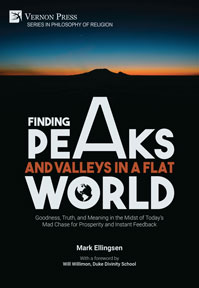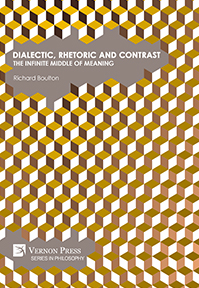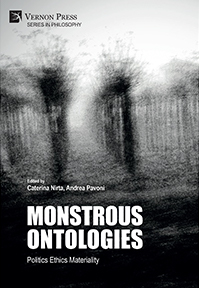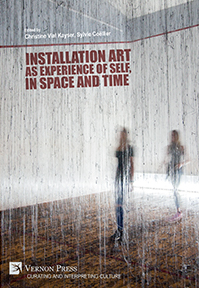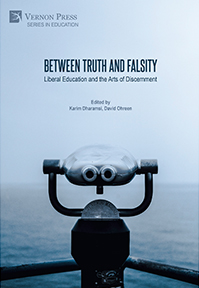Search
Browse
by Publication status
by Subject
Anthropology (26) Art (122) Business and Finance (25) Cognitive Science and Psychology (53) Communication and Journalism (43) Economics (61) Education (65) History (144) Human Geography (22) Interdisciplinary (40) Language and Linguistics (126) Law (16) Music Studies (18) Philosophy (151) Political Science and International Relations (98) Sociology (292) Statistics and Quantitative Methods (19)by Series
Series in Literary Studies (62) Series in Philosophy (57) Series in Education (49) Series in Sociology (42) Series in World History (31) Series in Politics (30) Bridging Languages and Scholarship (26) Series in Language and Linguistics (25) Cognitive Science and Psychology (20) Series in Philosophy of Religion (20) Series in American History (19) Series in Art (19) Critical Perspectives on Social Science (16) Series in Cinema and Culture (16) Curating and Interpreting Culture (15) Series on the History of Art (14) Series in Anthropology (13) Series in Critical Media Studies (13) Economics (13) Series in Business and Finance (12) Series in Music (12) Series in Performing Arts (9) Philosophy of Personalism (8) Series in Communication (8) Series in Law (8) Series in Economic Methodology (7) Series on Climate Change and Society (7) Classics in Economics (6) Series in Economic Development (6) Women's Studies (6) Philosophy of Forgiveness (5) Series in Built Environment (5) Series in Economic History (5) Series in Philosophy of Science (4) Series in Social Equality and Justice (4) Series on the History of Science (4) Serie en Sociología (3) Series in Contemporary History (3) Series in Creative Writing Studies (3) Series in Design (3) The Interdisciplinary Built Environment (3) Series in Heritage Studies (2) Series in Innovation Studies (2) Serie en Ciencias Políticas (1) Serie en Comunicación y Medios (1) Serie en Entorno Construido (1) Serie en Estudios Culturales (1) Serie En Estudios Literarios (1) Serie en Filosofía (1) Serie en Música (1) Series in Classical Studies (1) Series in Economics of Technological Change (1) Series in Philosophy of Race (1) Series in Urban Studies (1)by Language
English Spanishby Author
Browsing with filters

Finding Peaks and Valleys in a Flat World
Goodness, Truth, and Meaning in the Midst of Today’s Mad Chase for Prosperity and Instant Feedback
Mark Ellingsen, Interdenominational Theological Center
Availability: In stock
90pp. ¦ $29 £22 €25
The flat world of our globalized economic order—with its information technology mandating the need for the labor force to compete globally—has led to turmoil, injustice, and growing unhappiness in our everyday lives. We need a way to find some mountaintops and fulfillment in our flat world, to have a sense that some moments can have eternal significance. Søren Kierkegaard, forerunner of Existentialism, provides us with a vision of life to help us cope and give us joy. Along the way, we’ll see how a lot of his insights connect with cutting-edge findings on brain research about the biological dynamics of joy and fulfillment. Finding Peaks and Valleys in a Flat World will be of interest to undergraduate Philosophy and Religion students as well as Kierkegaard specialists. It will also be a good reference work for people interested in social analyses and theologians of every denominational affiliation.
Dialectic, Rhetoric and Contrast: The Infinite Middle of Meaning
Richard Boulton, St George’s, University of London; Kingston University
Availability: In stock
148pp. ¦ $44 £33 €37
By compiling an experimental method combining both dialectic and rhetoric, ‘Dialectic, Rhetoric and Contrast: The Infinite Middle of Meaning’ demonstrates how singular meanings can be rendered in a spectrum of 12 repeating concepts that are in a continuum, gradated and symmetrical. The ability to arrange meaning into this pattern opens enquiry into its ontology, and presents meaning as closer to the sensation of colours or musical notes than the bivalent oppositions depicted in classical logic. However, the experiment does not assert that this pattern suggests some sort of constant or absolute principle; instead, it theorises on the ways in which meaning can be considered to be recursive. To explain this, the book explores the concept of contrast itself. No exactitude on the precise existence of contrast can ever be struck because the answer varies infinitely depending upon the scale of measurement used to gauge the meeting point. This characteristic of contrast helps to define a whole new dimension from which sensation, meaning, cognition and consciousness can be analogised to the infinite forms between forms. At a time when the widest consensus in philosophy is the exhaustion of its central themes, the significance of such a hypothesis provides fresh impetus to revise some of the key meanings and concepts underpinning contemporary thought. To do this, the method explores the opposing themes of idealism and realism that run throughout western philosophy from Plato to the Speculative turn. This book will be of interest to professional academic audiences in the humanities and social sciences, from graduates to senior scholars. It will also be an interesting read to anyone wishing to keep abreast of developments in continental philosophy, epistemology, metaphysics, and the sociology of knowledge.
Monstrous Ontologies: Politics Ethics Materiality
Edited by
Caterina Nirta, University of Roehampton, London
and Andrea Pavoni, University Institute Lisbon, Portugal
Availability: In stock
255pp. ¦ $62 £47 €53
While the presence of monsters in popular culture is ever-increasing, their use as an explicit or implicit category to frame, stigmatise, and demonise the other is seemingly on the rise. At the same time, academic interest for monsters is ever-growing. Usually, monstrosity is understood as a category that emerges to signal a transgression to a given order; this approach has led to the demystification of the insidious characterisations of the (racial, sexual, physical) other as monstrous. While this effort has been necessary, its collateral effects have reduced the monstrous to a mere (socio-cultural) construction of the other: a dialectical framing that de facto deprives monstrosity from any reality. 'Monstrous Ontologies: Politics, Ethics, Materiality' proffers the necessity of challenging these monstrous otherings and their perverse socio-political effects, whilst also asserting that the monstrous is not simply an epistemological construct, but that it has an ontological reality. There is a profound difference between monsters and monstrosity. While the former is an often sterile political and social simplification, the end-product of rhetorical and biopolitical apparatuses; the latter may be understood as a dimension that nurtures the un-definable, that is, that shows the limits of these apparatuses by embodying their material excess: not a 'cultural frame', but the limit to the very mechanism of 'framing'. The monstrous expresses the combining, hybridising, becoming, and creative potential of socio-natural life, albeit colouring this powerful vitalism with the dark hue of a fearful, disgusting, and ultimately indigestible reality that cannot simply be embraced with multicultural naivety. As such, it forces us towards radically changing not the categories, but the very mechanisms of categorisation through which reality is framed and acted upon. Here lies the profound ethical dimension that monstrosity forces us to acknowledge; here lies its profoundly political potential, one that cannot be unfolded by merely deconstructing monstrosity, and rather requires to engage with its uncomfortable, appalling, and revealing materiality. This book will appeal to postgraduate students, PostDocs, and academics alike in the fields of philosophy, critical theory, humanities, sociology and social theory, criminology, human geography, and critical legal theory.
Installation art as experience of self, in space and time
Edited by
Christine Vial Kayser, Héritages UMR9022 (CNRS, CY, Ministère de la culture), France
and Sylvie Coëllier, Aix-Marseille University, France
Availability: In stock
330pp. ¦ $64 £48 €55
Installation art has modified our relationship to art for over fifty years by soliciting the whole body, demonstrating its sensitivity to space, surroundings, and the living beings with which it is constantly interacting. This book analyses this modification of perception through phenomenological approaches convoking Husserl, Heidegger, Merleau-Ponty, as well as Levinas, Depraz, and the neuroscientist Varela. This theoretical framework is implicit in the various case studies which revisit works that have become classic or emblematic by Carl Andre, Bruce Nauman, Dan Graham; inaugural experiments that remain available only through photographic and written archives by Jean-Michel Sanejouand, Philippe Parreno, as well as the influence of the mode in the realm of music. The book also examines the transference of this Western form to Asia, revealing how it resonates with ancient Asian representations and practices—often associated with the spiritual. The distinct chapters underpin the role of space as a metaframe, the common ground of the various installations. While the nature and agency of space varies—from social, historical space, leisurely or political space, inner psychological space, to shared empty space—these installations reveal the chiasm between the individual body and the outside space. The chapters bear testimony of the process in which the physical journey of the spectator’s body within a material—at times invisible—space and its structural components takes place in time, as a succession of micro-experiences. ‘Installation art as experience of self, in space and time’ adds to the existing literature of art history a level of theoretical, experiential and transcultural analysis that will make this inquiry relevant to both university students and independent researchers in the academic fields of philosophy, psychology, aesthetics, art theory and history, religious and Asian studies.
Between Truth and Falsity: Liberal Education and the Arts of Discernment
Edited by
Karim Dharamsi, Mount Royal University, Canada
and David Ohreen, Mount Royal University, Canada
Availability: In stock
180pp. ¦ $44 £30 €37
It seems we are awash in information. From the moment we wake until we turn over our phones at night, we are bombarded with images and messages, news and information from a confounding number of sources. But as the amount of information available to us increases ever more rapidly, its quality and reliability seem less credible. Russian troll bots, 4chan, Breitbart, and Rebel Media, challenge our credulity, but they do so by mimicking aesthetic registers consumers expect of “traditional” media outlets. Moreover, traditional news sources, both privately owned and public broadcasters, already weakened by eroding revenue, cuts to budgets, and shifting demographics, are under sustained attack from those who wish to damage their ability to hold powerful people to account. Instead of a multi-perspectival approach, which seeks to report to the public the many ways to address a particular issue, taking the reporter’s role as neutral with regard to outcome, “fake” or “ideologically” driven news sources compete for audience attention and faithfulness, often using emotion to rally people toward a certain political cause or issue. Academics, meanwhile, have their work attacked and undermined by people or groups seeking to advance political or economic interests. They are told they too are political actors, one more voice in a messy public arena instead of a font of reliable information and knowledge. While academics continue to believe that their work, at least in part, enhances our understanding of the world and informs debate, how do we know that their conclusions are indeed more reliable than their critics in the “post-truth” era? ‘Between Truth and Falsity: Liberal Education and the Arts of Discernment’ will aid academics and students seeking to better grasp the value of liberal education within this post-truth era. It seeks to advance pedagogical ideas in order to fight factual erosion and reinforce intellectual capacities that are able to critically assess the chaos of information enveloping all segments of society. This volume will therefore be of particular interest to academics and university educators working in higher education, graduate students theorizing the nature of media and the role of higher education, undergraduates studying liberal education and the nature of the university, and those thinking about liberal education.

